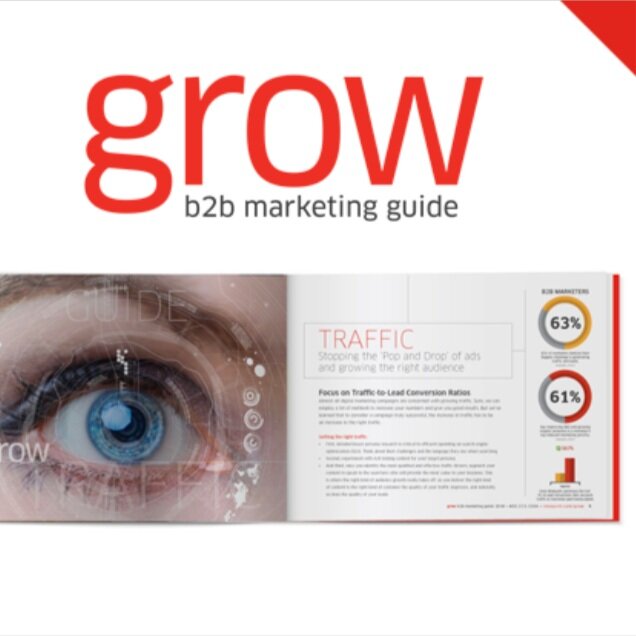We have more data at our fingertips today than ever before. In theory, that should make meeting our marketing KPIs — like generating more SQLs and driving more revenue — easier. But quite often, what happens instead is inconsistency in data collection and the inability to use what you gather to improve performance.
That's where MarTech comes in. A quality marketing technology helps you continually and efficiently track, analyze, and understand each KPI that matters the most to your B2B marketing strategy and business success.
MarTech Helps You Meet Each B2B Marketing KPI
MarTech is a form of marketing automation that never sleeps — unlike your marketing team, who has to. It's always tracking and analyzing data. Because of this, you can consistently view useful performance data to identify challenges and opportunities. You can make data-informed decisions and adjust your strategy more quickly, rather than waiting for delayed indicators such as quarterlies to tell you what you're doing isn't working. Be proactive, not reactive.
MarTech offers you real-time business intelligence. This helps you identify which marketing KPIs you should be tracking and how each one directly impacts your business goals. It creates transparency between sales and marketing, unifying them in a shared purpose, meeting shared KPIs like:
- Marketing ROI
- Number of SQL
- Lead-to-Close Ratio
- Average Order Value
- Customer Lifetime Value
- Organic Traffic
It Provides Interpretation, Not Just Data
MarTech doesn't just collect a bunch of numbers you could never review in a lifetime, let alone find useful. It interprets data, compiles it continuously, and presents it in the most useful form. Through an easy-to-understand dashboard, in seconds, you can get a full view of what's happening right now across marketing KPIs to make smart decisions.
It Opens the Door to New Possibilities
Some examples of popular MarTech platforms include HubSpot, Pardot, Marketo, and Google Analytics.
Google Analytics is a free and great place for most marketing departments to start. It reveals how people find and navigate your website, allowing you to optimize and improve the visitor experience. You can show your C-suite how you're driving traffic and revenues with your B2B marketing strategy.
This opens the door to better tools because it gives the C-suite a sample of what MarTech can do for your B2B company’s marketing and sales.
It's hard to beat free tools like Google Analytics. But when trying to make the case for MarTech in the boardroom, it's important to understand why MarTech is worth the investment. Paid tools like HubSpot, for example, not only provide you with useful data but also can respond directly to that data with predefined actions based upon your strategy and instructions.
In other words, they can interact with the lead anytime, day or night, sending the right message at the right time to keep the person progressing through the sales funnel. Then, they can identify when that lead is ready for a sales handoff and transfer the lead seamlessly.
This supports alignment between sales and marketing because together, you'll decide the criteria that determines when a handoff should take place. The point at which an "MQL becomes a SQL" is no longer up for individual interpretation.
It Demystifies the "Unmeasurable"
For decades, pro marketers have done much of their work on a hunch. You knew from experience if you did A + B, it would equal C. But you may have had trouble measuring A and B, so you could not draw a straight line to C.
This often leads to trouble justifying certain marketing expenses to a C-suite. They can't make the connections if you can't "show your work". They may not be able to see how A, B, and C increase revenues.
Martech helps you track the previously hard-to-measure metrics. It reveals what's really happening behind the scenes. That way, you can sell it to your C-suite because it's clear that what you're doing is working. It's undeniable.
It Defines the B2B Buyer Journey
Because Martech continuously tracks, you'll learn who your ideal customers really are. You can clearly define the steps they take from stranger to customer.
From this understanding, you'll develop perfect timing, maximize effectiveness, and cut the waste that occurs from misguided marketing efforts. With a strategy customized to your audience and their journey, you consistently meet each marketing KPI and deliver qualified leads. What's more, customers feel more engaged in the process.
They don't just appreciate your product. They like you. That's important for customer retention.
It Helps You Identify What Your Marketing KPIs Should Be
If you're tracking the wrong marketing KPI, it doesn't matter if you meet it or not. But it's not always easy to know what to track. B2B marketing technology can help you identify which KPIs are real key performance indicators.
Through this insight, you'll better align each marketing KPI with your business goals, sales, and budget to truly take your marketing performance to the next level, and you’ll have the ability to justify your investment in this technology.
It's Predictive & Proactive
This technology supports proactive planning versus reactive planning. Not only can you view real-time business insights, but also over time you'll learn to use that same data to predict, plan, prepare, and adapt proactively. You'll become more strategic and effective as a marketing leader.
Have we sparked your interest in MarTech? Would you like to see it in action? Download this case study to see how we used MarTech and inbound marketing to help this company generate 20X ROI.







 By
By 
